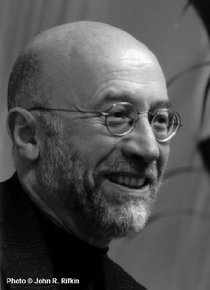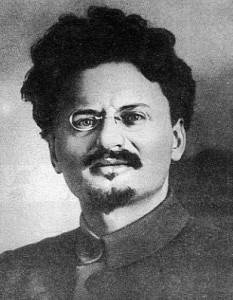R.I.P. Tony Judt
 The historian and critic Tony Judt died this weekend from complications related to Lou Gehrig’s disease (ALS). He was 62. From the obituary in the Times.
The historian and critic Tony Judt died this weekend from complications related to Lou Gehrig’s disease (ALS). He was 62. From the obituary in the Times.
An impassioned left-wing Zionist as a teenager, he shed his faith in agrarian socialism and Marxism early on and became, as he put it, a “universalist social democrat” with a deep suspicion of left-wing ideologues, identity politics and the emerging role of the United States as the world’s sole superpower.
[…]
“Today I’m regarded outside New York University as a looney-tunes leftie self-hating Jewish communist; inside the university I’m regarded as a typical old-fashioned white male liberal elitist,” he told The Guardian of London in January 2010. “I like that. I’m on the edge of both, it makes me feel comfortable.”
There’s a wealth of links on the obit page to articles by and about Judt. I recommend “Israel without Cliches” (6/9/10). Also, here are excerpts from Judt’s most recent book, Ill Fares the Land at the NYRB and at the Times. Here’s all of Judt’s NYRB work (not sure how much is accessible without a subscription). Also check out “Bush’s Useful Idiots” from the LRB. And here’s an interview with Marc Tracy at Tablet, and another on Fresh Air about living with ALS.
Fiction break: Eric Hobsbawm

Leon and I are birthday buddies
Good historians are hard to find. I was awhile ago reading this book Reappraisals by Tony Judt (that book is worth reading for sure), and he wrote this piece on Eric Hobsbawm in which he says:
Hobsbawm doesn’t just know more than other historians. He writes better, too: There is none of the fussy “theorizing” or grandiloquent rhetorical narcissism of some of his younger British colleagues (none of the busy teams of graduate researchers, either—he does his own reading). His style is clean and clear. Like E.P. Thompson, Raymond Williams, and Christopher Hill, his erstwhile companions in the British Communist Historians’ Group, Hobsbawm is a master of English prose. He writes intelligible history for literate readers.
No small praise, that. So when I saw a copy of Hobsbawm’s The Age of Empire: 1875–1914 on the discount non-fiction table at the Strand, I dug deep into my linty pockets, dumped a pile of quarters at the register, and cracked open my purchase. The book is the last in a series of four in which Hobsbawm pretty much dissects the cadaver of western civilization to find out how we got where we are (much of it with an endearing pinko slant). So, yes, I’m suggesting that you read both Judt and Hobsbawm if you’re sick of reading the Bleak Houses of the world, but, also, I was thinking of this panel I read about at the PEN World Voices Festival in which they discussed non-fiction and why (or why not) the better examples of it should be considered literature. Fun! Thoughts? I’m looking at you, Orwell.
May 6th, 2009 / 8:21 am
